"We're trying to create a positive vibe in mushroom consumption by getting consumers to try other products with more added volume," begins Pieter Lenaerts, Managing Director of Fresh Mushroom Europe (FME). He co-owns this Dutch company with Matthijs and Arie Verburg, and explains the importance of that added value.
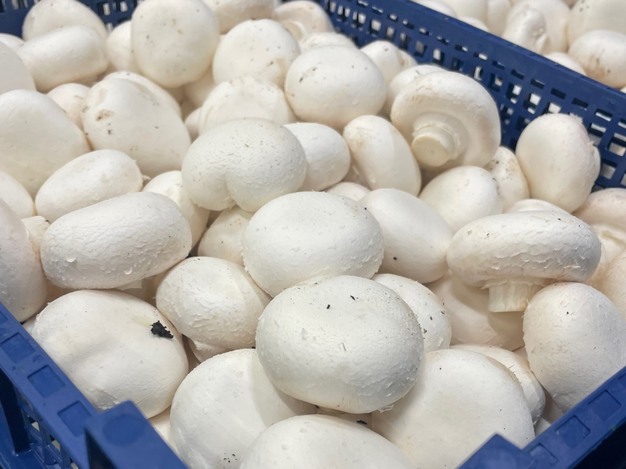
"The higher the added value, the easier it is for retailers and producers to create the necessary profitability. The challenge is to find products that benefit both our customers and us. We're working very hard on that and discuss it a lot with our clients. Everyone's open to that: finding products with which you can substantially increase the mushroom market share."
Investment capacity
That is needed to maintain investment capacity, Pieter points out. "Last year, there was a huge step regarding consumers in the Netherlands. Belgium lagged somewhat regarding price development, which could indirectly negatively affect investment capacity. And those investments are sorely needed to make mushrooms a true protein substitute," he says. Mushrooms can play an important protein transition role. "You can primarily fill that need with convenience products. Our white and chestnut volumes are rising sharply. That's because people are eating more mushrooms because of their protein content.”
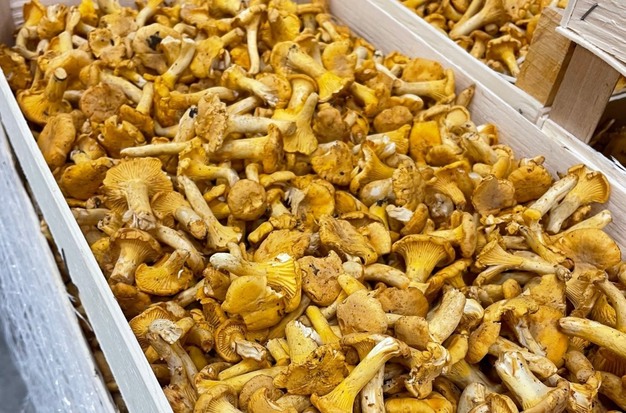
Firm position
FME, thus, expects mushrooms to maintain a firm position. "The government measures around fertilization and nitrogen are putting pressure on meat production. At some point, that affects prices, while meat is already quite expensive. That's only going to increase, which will accelerate the transition among consumers. The alternative - fruits and vegetables - is much cheaper," Pieter says.
Mushroom convenience product sales grew considerably this year. "Retailers are doing a lot to sell mushrooms differently and are coming up with meal solutions using them. Those make it easier for people to use mushrooms."
Taste sensation and experience
That is where FME's focus lies, too. "We want our products to answer the consumer question: what can I actually do with mushrooms?" adds Matthijs. He points out that their herb mixes were developed based on dried and fresh mushrooms and herbs. One such product focuses on the traditional Italian flavor in risotto and pasta which uses dried cepes (porcini mushrooms). "We want to bring culinary art to the general public. These products offer a taste sensation and experience without needing a top chef. It's a mix we deliberately developed."
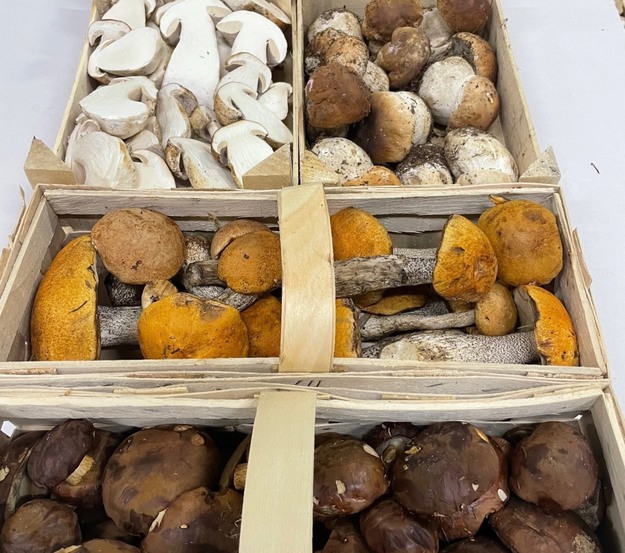
Pieter adds that FME is working on a new convenience product line to be launched in the fall. He says the products aim to get stores to try other references to build shelf traffic. "These are small risky references that retailers often aren't interested in offering under a private label. If it goes well, those references can be converted to private labels," he says.
Wild mushrooms
Another FME focus is wild mushrooms, which it began sourcing from countries like Sweden and Canada in early September. "Sweden's mushroom season is well underway, with high-quality products which are great for chefs," Matthijs says. "We've organized locals to forage for mushrooms in Sweden's forests especially for us." The company does not source these mushrooms only from Sweden "We have product specialists in several European countries. Based on their price and quality assessment, we choose which country of origin to start in, and when," he explains.
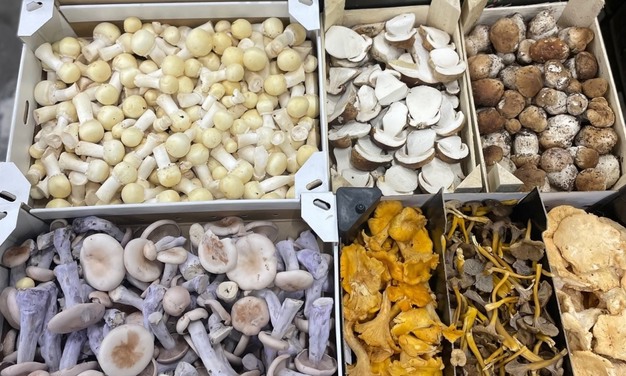
Pieter points out that sourcing wild mushrooms is a totally different ball game to cultivating other mushrooms. You can, for example, grow mushrooms quite easily somewhere, but a network is indispensable when it comes to wild mushrooms picked by hand in the forests. "You have to build networks of people foraging in the forests. Then you also have a very reliable purchasing channel," he says.
Tasty, safe product
Here, Pieter refers to food safety, a vital aspect when it comes to wild mushrooms. "Legislation-wise, we work with the government to ensure the processes are all proper and safe. We can, thus, market wild mushrooms without qualms and offer our customers tasty but also safe products."
Origin is, therefore, important when it comes to wild mushrooms, Pieter notes. "It's paramount to us that we buy everything firsthand. We want to know exactly which forest and square meter the mushrooms come from and who harvested them. That's not possible if you buy second or third-hand. Also, our quality department closely monitors things like those mushrooms' tracing and analysis," he explains.
High-end
Matthijs admits they are targeting high-end clients with these exclusive mushrooms and that the products often end up at restaurants or are marketed via the wholesale market in Paris. It is mostly a supply-driven market. "Availability and quality is 100% seasonal," he states.
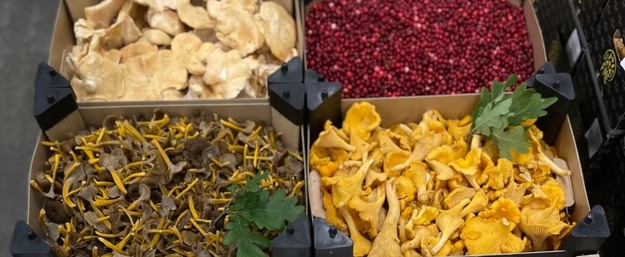
Also, says Pieter, wild mushrooms are highly price-sensitive. "Their prices can sometimes, due to availability, vary by a factor of three to four year-to-year. If it's a bad season with few mushrooms and high prices, restaurants won't use them as often as when prices are attractive. As long as it's also affordable to diners, chefs love cooking with mushrooms," he concludes.
Matthijs Verburg
matthijs.verburg@fme-nv.com
Pieter Lenaerts
pieter.lenaerts@fme-nv.com
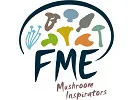 Fresh Mushroom Europe
Fresh Mushroom Europe
Riyadhstraat 41
B-2321 Meer (Transportzone), België
+32 (0)3 317 18 19
info@fme-nv.com
www.fme-nv.com
